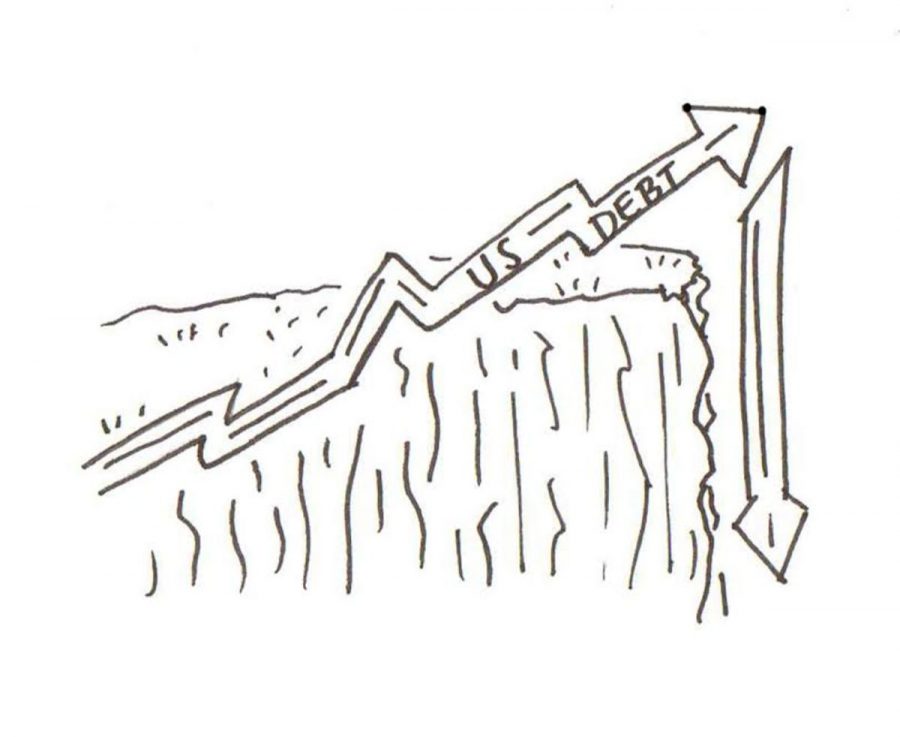United States pushing the debt ceiling
December 12, 2013
In October, the United States government decided to raise the debt ceiling due to a lack of compromise between the two political parties. Some believe that this will help the U.S. economy against the debt crisis the country is facing, while others believe this will only hinder the chances the U.S. has of coming out on top. Raising the debt ceiling will only increase the U.S. debt and allow for additional spending by the U.S. government.
On Oct. 17, the Senate voted to raise the debt ceiling after a 16 day shutdown, which costed the U.S. $24 billion. With a 285 to 144 voting count, the new proposal had passed. The government would be funded through Jan. 15 and the debt ceiling would be raised until Feb. 7. As of May 2013, the debt stands at $17 trillion.
According to realclearpolitics.com, “The growing U.S. debt is a manifestation of the expanding size of government. Focusing on the deficit is a distraction from this concern. Since deficits can be reduced either by cutting spending or raising taxes, both liberals and conservatives can agree on the value of reducing deficits while strongly disagreeing on how to reduce them.”
Raising the U.S. debt as a solution to the government shutdown only lets President Obama and Congress be able to spend more and add to the current debt. It does not demand for new spending, but allows for spending if need be.
“Clearly, raising the debt ceiling does not in and of itself increase the debt or grow the deficit,” said Steve Ellis, vice president of Taxpayers for Common Sense. “When the credit card company increases my credit limit, it doesn’t increase my debt load or even my spending. But it certainly facilitates it. The same is true with the debt ceiling.”
The new rise in the debt ceiling calls for additional spending in the future. Raising the debt ceiling is a necessary condition for raising spending without a default.
“It’s like signing a contract to purchase new furniture, and then going to your credit card company and asking for a credit limit increase to cover the amount,” said Satya Thallum, director of financial services policy with the the center-right American Action Forum, “The debt ceiling doesn’t lead to additional spending, but it does risk the possibility that you won’t be able to pay.”
On the other side of the spectrum, some believe that a rise in the debt ceiling is necessary if the U.S. has any chance of ending the debt crisis the country faces. This would only create a larger debt for the U.S. while not solving anything and not helping with lowering the current deficit.
Raising the debt ceiling will only increase the U.S. debt and allow for additional spending by the U.S. government. It will increase the chances for future spending and financial commitments by the United States government.













Adam Johnson • Jan 12, 2014 at 9:06 pm
I didn’t see what you think should be done in this article. Make sure you have an opinion in a political opinion article. Anyways, I’ll share what I think. It’s obvious that at some point, there will need to be some sort of compromise to start reducing spending. Eventually, the entire budget will be taken up by just paying interest on our debt. We need to make sure that we both raise taxes and cut spending, to satisfy both parties.